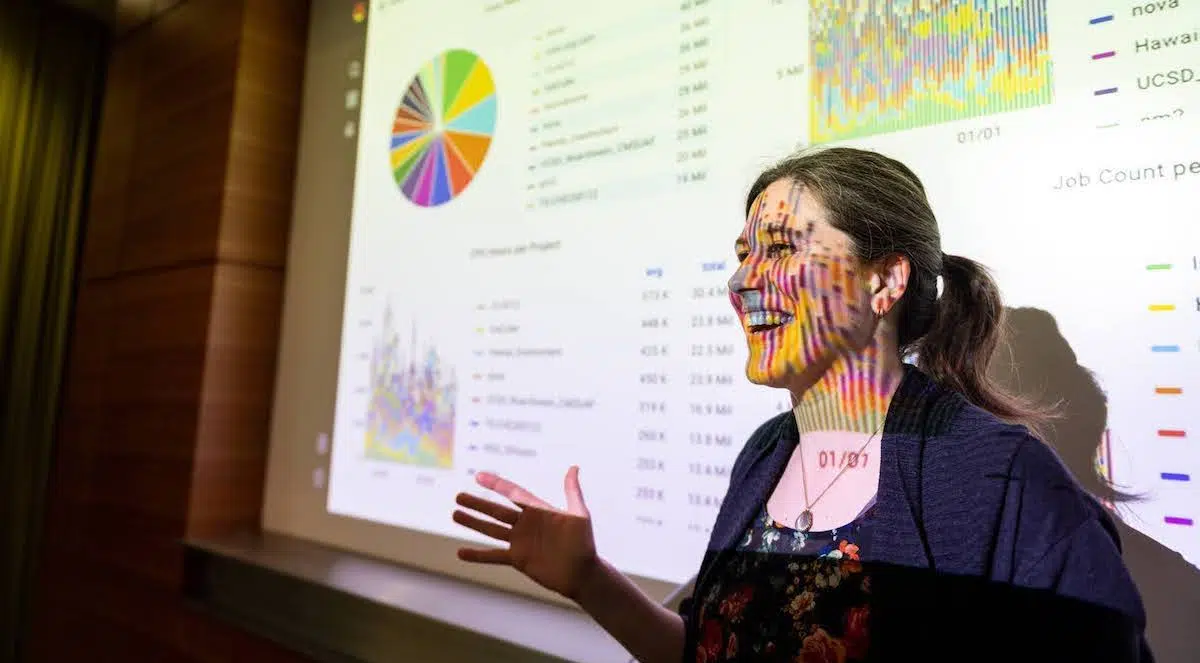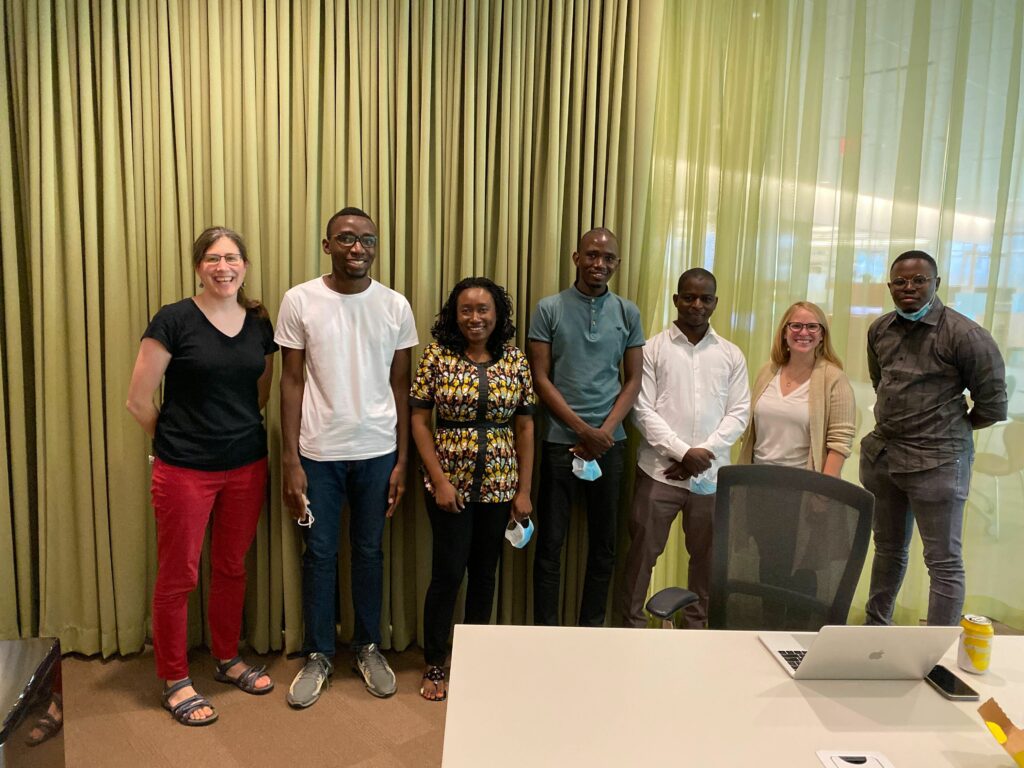NIAID/ACE students attend this year’s OSG User School 2022
Mandy Gorski and Hannah Cheren September 09, 2022

This past July, the OSG User School 2022 welcomed students from across the globe to learn how to use high-throughput computing (HTC) in their scientific research.
The OSG User School has been an annual week-long event hosted at the University of Wisconsin-Madison for over a decade. The program uses lectures and hands-on exercises to introduce and inform students about HTC systems.
Five students from Makerere University in Uganda and the University Of Sciences, Techniques, and Technologies of Bamako in Mali, Africa, participated as a part of The U.S. National Institute of Allergy and Infectious Diseases (NIAID) and the African Centers for Excellence in Bioinformatics and Data-Intensive Science (ACE) partnership program.
This event was not the first time NIAID, ACE, and OSG partnered. Back in February, students and faculty in the ACE program engaged in a customized HTC training session over Zoom led by Christina Koch, a research computing facilitator with UW-Madison’s Center for High Throughput Computing.
HTC makes it easier for researchers with data-intensive or computationally heavy research to manage their work better and more efficiently. Using OSG high throughput computing services, researchers can tackle numerous tasks (like analyzing large amounts of data) that are too resource-intensive to run on just a laptop.
HTC uses parallel computing; so, when a researcher has a large data set they want to analyze, OSG high throughput computing services allow them to submit jobs in parallel and produce results more quickly.

One OSG User School 2022 attendee, Mike Nsubuga, came from Makerere University in Uganda as an MS student in Bioinformatics. Nsubuga also participated in the virtual training session back in February, which he says was a good start for him to have some experience using HTC and to be able to see how he can apply it to his research. To gain more experience, he applied for the continuation of the OSG School this summer.
In addition to conducting his research on antimicrobial resistance, Nsubuga is a software developer responsible for creating a Covid-19 AI chatbot based in Uganda. And although Nsubuga came to the User School almost certain the application of HTC wouldn’t work within the scope of his research, he admits he was pleasantly proved wrong.
“I would definitely recommend the OSG User School to others, without a doubt, at least to try,” he says. “It’s just a process of understanding what someone is trying to solve, what challenges they are facing, how they want to be helped—and trying to fit that into the OSG and seeing what it has to offer and what it can’t.”
Aoua Coulibaly was another participant who had taken the February training. Coulibaly is a Bioinformatics consultant at ACE from the University Of Sciences, Techniques, and Technologies of Bamako in Mali and a Ph.D. student in the same subdiscipline. Her research of interest lies in studying the malaria parasite, Plasmodium.
Coulibaly had previous working experience with High-Performance Computing (HPC) to evaluate systems. Through the User School, she found the benefits of incorporating HTC with research.
“The fact that we can submit multiple jobs at once, I think that was really interesting,” she says. “I can apply that to my research so the analysis can go faster.”
Also continuing training was Modibo Goita, an MS student in Bioinformatics with studies focused on Malian genetic neurological disorders. His thesis is on the concept of genetics with an emphasis on early breast cancer detection screening via germline mutations.
In genomics, the challenge is that the data size is often immense. Goita learned that with the help of OSG high throughput computing services, he could explore the possibility of scaling up and going beyond the limitations that a single computer cluster could provide.
"It’s just a process of understanding what someone is trying to solve, what challenges they are facing, how they want to be helped—and trying to fit that into the OSG and seeing what it has to offer and what it can’t."
Other trainees in attendance included Sitapha Coulibaly and Kangaye Amadou Diallo, both ACE students who journeyed to the Midwest from Mali. Diallo is a Ph.D. student in Bioinformatics whose research surrounds the potential for rice microbiomes to block damage to pesticide-free plants. Coulibaly is an MS student in Bioinformatics who concentrates on the genetics of crop-damaging soil bacteria.
As for the ACE students as a collective, they accredit the OSG staff’s willingness to help as a large part of why integrating HTC into their research was more effective and why their experience was worthwhile. Their consensus is that they would recommend the OSG User School to other researchers dealing with computing-intensive science while noting that spreading the word and hosting more collaborations is an essential means to do so.
The OSG and ACE/NIAID teams are looking forward to continued collaboration. In September 2022, the OSG’s Director, Frank Wuerthwein, and Research Computing Facilitator, Rachel Lombardi, will be traveling to Makerere University in Kampala, Uganda to lead a workshop on using OSG resources at the 2022 ACE Global Consortium Meeting.
Through this continued partnership, The NIAID/ACE, Morgridge, CHTC, and OSG hope to spread the word of HTC and advance basic research through HTC, with continued support for local and global collaborators—and ultimately helping bring computing resources to all.
